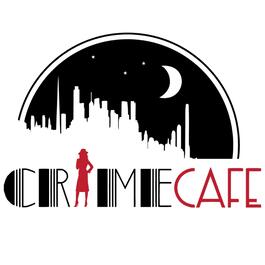
Join crime writer Matt Cost and me, as we discuss how Matt manages to write and publish three books a year, in various series. You can download a copy of the transcript here. Debbi (00:00:52): Hi, everyone. Happy New Year. Today is the third of the month, so it's still a pretty new year. Anyhow, my guest for this episode is the former owner of a video store, a mystery bookstore, and a gym. I assume that he formerly owned these. He's also taught history and coached just about every sport imaginable, in his words. So I'm trying to imagine some sports he might not have coached. Coming to us from Brunswick, Maine, it is my pleasure to introduce my guest, Matt Cost. (00:01:31): Hi, Matt. How are you doing today? Matt (00:01:33): I'm fantastic, Debbi. Thank you much for having me on. Debbi (00:01:37): Oh, it's my pleasure. Believe me. I always enjoy talking to people about their books and stuff. (00:01:43): So I read your guest post. My goodness, your life sounds exhausting. It sounds like you're constantly on the go. And you write three books a year and publish them? Matt (00:01:55): Yes. You know, I got my first book published in 2020 after a short 29 years of waiting to get it published because I wrote it in 1991, originally the first draft. So when I got that door open, I decided to just go straight for it. And so that's kind of what I do. I write seven days a week, 365 days a year and do all the other pieces that I put with that guest post on your blog. Debbi (00:02:24): Wow. Well, I'm impressed. I got to say, three books a year is really good, in my opinion. That's a fantastic output. Matt (00:02:35): The variety of things you do is pretty cool, though. You've got mysteries and thrillers and young adults and screenplays. So that's all very cool. Debbi (00:02:44): It's very cool. It may not be remunerative, but it's cool. I'm enjoying it, though.I do enjoy writing screenplays very much. (00:02:54): How do you organize your workflow? Do you keep a calendar of, say, short-term deadlines, things like that? Matt (00:03:03): Not so much. Like I said, I write every day because without writing, nothing else matters. And so I fall into a rhythm where it takes me three or four months to write a book, but then it takes me three or four months to edit a book and three or four months to market a book and then three or four months promoting a book. And I'm generally doing all four of those things at the same time for four different books. (00:03:31): So that's kind of how my time is managed, you know, I break it out and what I need to get done. But I always start the day with writing because none of the rest of it matters if you don't write. Debbi (00:03:43): Exactly. Exactly right. Yeah. And how do you manage the paperwork in terms of like, or the filing system, as it were, if it's an online filing system of your research and stuff, because you do a lot of historical research, don't you? Matt (00:04:02): Yeah, I've done three standalone historical fiction pieces. And then I also have started a series that's a historical PI mystery series set in 1920s Brooklyn, New York. Bushwick, not too far from Queens. And, so to answer the question, I start with a document where I'm taking notes on the research that I'm doing. Much more heavy for historical, but some of the mysteries, you know, like when I get into genome editing and my book Mouse Trap, that took a lot of research on my part to understand the science behind that, because that's not my forte, so to speak. And so I take all of those notes and then I develop character sketches. (00:04:52): And I usually pick a picture that corresponds with what I think, maybe some famous actor, maybe just some schmo off of the internet that fits the image of who I'm looking for. And then I create an outline, which has over time become a pretty exact science for me. It is, you know, 40 chapters long and there's three things in each chapter and a date and a word count.
From "The Crime Cafe"


Comments
Add comment Feedback